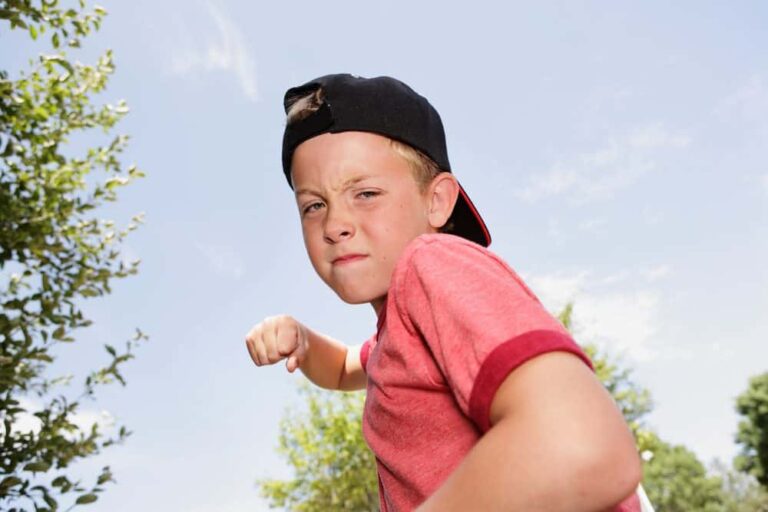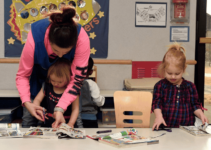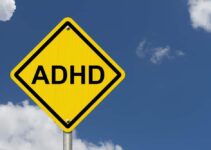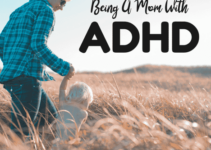ADHD can lead to a host of problems both at home and at school, which can interfere with your child’s ability to succeed in class, with peers, and in their personal life.
It is important to note that because ADHD has the ability to affect your child’s academic performance and personal relationships, your child faces a higher risk of developing psychological issues like anxiety, depression, aggression, or anger.
Moreover, pediatric ADHD-based psychological issues can persist into adulthood, especially if left unaddressed.
Unfortunately, it can be challenging to determine if your child is exhibiting ADHD-based psychological symptoms.
Note: If your child only exhibits ADHD-based psychological symptoms (i.e. impulsivity, inattention, and hyperactivity) occasionally and/or only in certain situations, there is a good chance he/she is not suffering from the psychological component of ADHD.
On the other hand:
If your child is experiencing anxiety, anger, frustration, depression, and low self esteem on a consistent basis, it may be time to consult your child’s pediatrician.
Read this guide to learn more about the symptoms, causes, and treatments of ADHD.
Table of Contents
So, what should you do if you suspect that your child is experiencing psychological effects of ADHD?
The first thing you should do is schedule an appointment with your child’s pediatrician, who will probably refer you to a child psychologist, child therapist, or child counselor.
In addition, you should learn all you can about ADHD, the signs and symptoms, the diagnosis, and available treatments.
The good news is once you have a firm grasp on what your child may be struggling with (i.e. absentmindedness or an inability to pay attention at school), you can work with his/her teachers to find creative solutions to combat any ADHD-based psychological issues.
What Are the Psychological Effects of ADHD?
Children with ADHD tend to have more social issues than children without the condition. More specifically, they tend to have a harder time making and keeping friends and socializing in peer groups – both in and out of the classroom and at social events.
This applies to all subgroups (i.e. inattention, impulsivity, and hyperactivity) of ADHD and both genders.
Why is it so hard for children with ADHD to make and keep friends?
A common reason is that children with ADHD typically have a harder time deciphering verbal cues and gestures.
Additionally, children with ADHD may have a difficult time sharing or taking turns with others. They may also have a habit of interrupting others or may not know how to properly start or end conversations, compromise, cooperate, or problem-solve. In addition, they may have a hard time controlling their behaviors and emotions.
Children with ADHD may also be overly aggressive or anger-prone, which doesn’t bode well when trying to develop and maintain friendships. These children may also act inappropriately when they are angered or upset. As a result, other children may shun or avoid children with ADHD because they find these behaviors irritating, annoying, rude, or frustrating.
[thrive_custom_box title=”” style=”dark” type=”color” color=”#faf8d7″ border=”#000000″]
It is important to note that this inability to develop and retain friendships can be psychologically taxing to children with ADHD. It hurts to not have friends, and not having friends can open these children up to being bullied or becoming a bully.
[/thrive_custom_box]
Furthermore, a lack of friends and feeling awkward or shunned by peers can negatively affect their self esteem and self confidence.
In fact, a study conducted by the University of Pittsburgh and the University of Chicago on pediatric ADHD and suicidal ideation or attempts found that approximately 18% of adolescents with ADHD suffer from low self esteem, social anxiety, and depression, which is about 10 times the rate of those who do not have ADHD.[2] In addition, researchers found that children with ADHD are approximately 5x more likely to have suicidal ideations (suicidal thoughts), and 2x more likely to attempt suicide than children without ADHD.[3]
Another study examining the impact of the social and emotional challenges that children with ADHD face found that children with ADHD-based psychological issues are more likely to miss school and doctor’s appointments than children without ADHD-based psychological issues.[4]
Furthermore, children with ADHD who suffer from psychological issues tend to visit the ER more frequently than children who have ADHD but do not exhibit psychological issues.[5]
[thrive_custom_box title=”” style=”dark” type=”color” color=”#faf8d7″ border=”#000000″]
Summary:
- Children with ADHD tend to have more social issues than children without the condition. This is psychologically taxing.
- 18% of adolescents with ADHD suffer from low self esteem, social anxiety, and depression.
- Dhildren with ADHD are approximately 5x more likely to have suicidal thoughts.
- Children with ADHD are 2x more likely to attempt suicide.
[/thrive_custom_box]
Anxiety
Another psychological symptom that some children with ADHD experience is anxiety.
Children with ADHD typically have a hard time with organization, which can lead to anxiety at school. In addition, children with ADHD, who tend to constantly worry about things, may have a more difficult time thinking rationally, clearly, and cohesively in class.
A 2014 study on anxiety and ADHD in children, published in the academic journal, Pediatrics, found that:
[thrive_custom_box title=”” style=”dark” type=”color” color=”#faf8d7″ border=”#000000″]
Children with ADHD and anxiety have a poorer quality of life and a harder time behaving and functioning in class and at home than children with ADHD who do not present psychological difficulties. [6]
[/thrive_custom_box]
Low Self Esteem
Another psychological symptom associated with ADHD in children is low self esteem.
[thrive_custom_box title=”” style=”dark” type=”color” color=”#faf8d7″ border=”#000000″]
Children with ADHD are more likely to develop self esteem issues because of their condition. It is important to understand that when people, especially young females, do not receive treatment for ADHD, they are at risk for developing chronically low self esteem. [7]
[/thrive_custom_box]
Your child’s low self esteem may stem from school-related problems like low grades, poor peer interactions or home issues like sibling rivalry, so it is important to determine the true origin of your child’s low self esteem.
In addition, if your child is inattentive, he/she may have a hard time completing homework assignments or household chores. They may also be forgetful, make repetitive mistakes, or become distracted easily. Your child may also have trouble applying logic to certain situations.
If your child is particularly impulsive or hyperactive, they may have a hard time sitting still during class, thereby interrupting or distracting other students. As a result, your child may become at risk for underachieving academically or failing classes, ultimately increasing his/her risk of developing poor self esteem.
Teen Substance Abuse
Did you know that ADHD can cause your child to develop a drug addiction that can possibly lead to psychological issues?
Well, it is true, especially if your teen has ADHD but is not being treated for it. Teens with ADHD often turn to alcohol and/or drugs for two reasons: euphoria (a blissful, overjoyed feeling) or to avoid personal issues like anxiety, low self esteem, or depression.
Why does this happen?
Well, for a variety of reasons. For instance, teens that have impulsive tendencies may use drugs because they are unable to control what is happening to them and around them. They may also turn to drugs and alcohol because they don’t know how to properly manage their ADHD symptoms.
[thrive_custom_box title=”” style=”dark” type=”color” color=”#faf8d7″ border=”#000000″]
Note: Children with ADHD usually begin abusing drugs and alcohol during middle school or high school. [8]
[/thrive_custom_box]
Note: Substance abuse can also aggravate ADHD symptoms like inattention, leading to low grades and a poor self esteem.
Depression
A common psychological symptom found in some children with ADHD is depression.
Your child may be depressed if you have noticed that they have frequent mood swings – one minute he/she is okay, the next one, they are sad and despondent. In addition, a depressed child with ADHD may feel guilty and ashamed over his/her condition, inadvertently worsening the physical and emotional symptoms of the condition.
[thrive_custom_box title=”” style=”dark” type=”color” color=”#faf8d7″ border=”#000000″]
Depression can affect your child’s behavior and also cause insomnia or oversleeping. Furthermore, if your child is depressed, he/she may have a hard time focusing in class, leading to low grades and self esteem issues.
[/thrive_custom_box]
Anger
Children with the inattentive type of ADHD may become angry with themselves and others. Some children may exhibit direct, physical anger (i.e. aggression), while others may assume a more passive-aggressive approach.
What does direct, physical anger look like in a child?
It could involve fighting with peers, being disobedient, disrespecting teachers, parents, and authority figures, vandalizing property, destroying things, hitting, kicking, biting, and being uncooperative at home or at school.
What does passive-aggressive anger look like in a child with ADHD?
It may involve failing to follow directions, making the same mistakes over and over again, not paying attention in class, and/or being forgetful.
[thrive_custom_box title=”” style=”dark” type=”color” color=”#faf8d7″ border=”#000000″]
The truth is, most children suffering from ADHD-based psychological issues don’t even realize that they are angry. And, if they are aware of this anger, they still may not know or understand where it is coming from. [9]
[/thrive_custom_box]
If your child suffers from impulsivity, they may voice their anger the minute they feel it. Remember, your child does not have the coping strategies that you have developed over time, so he/she most likely will not be able to restrain his/her anger. It is also important to note that children with ADHD tend to be very emotional beings who feel things deeply and personally.
As a result, it is not uncommon for these children to have a hard time controlling their emotions. For instance, they may become frustrated and have a tantrum after making a bad grade on a test, being scolded by a parent or teacher, or being shunned by peers.
In these situations, the anger probably stems from embarrassment. When your child becomes frustrated and can’t control the situation, the risk for angry outbursts is heightened. As a result, he/she may become severely angry and “lash out.”
Lastly, your child may experience anger when his/her ADHD meds stop working, leading to tantrums, “fits,” crying spells, or “meltdowns.” Keep in mind that ADHD symptoms typically involve increased energy and agitation, which may be overwhelming for your child to handle, and as a result, he/she may display this frustration, anger, and/or anxiety through their words and actions.
Aggression
Approximately 50% of children with ADHD have problems with aggression and controlling their emotions and behaviors. [10] In fact, ADHD is linked to delinquency, antisocial personality traits, substance abuse, and incarceration in teens and young adults.
Children with ADHD are often angry and ashamed of their condition and their inability to focus, make and keep friends, and/or excel at school. As a way to deal with these distressing emotions, they take their frustration out on others – i.e. peers, teachers, parents, siblings, strangers, authority figures – and themselves.
Note: Self-aggression can take the form of self-mutilation (i.e. harm) or self-harm (i.e. deliberate overdosing).
In some cases, children with ADHD who exhibit aggressive behavior can become bullies.
[thrive_custom_box title=”” style=”dark” type=”color” color=”#faf8d7″ border=”#000000″]
A recent study found that approximately 58% of children (third through sixth grade) with ADHD are bullies, as compared to only 14% of children without this condition.
[/thrive_custom_box]
On the flip side, approximately 28% of children with ADHD are bullied because of their condition. [11] So, there is a good chance that your child is “lashing out” or behaving aggressively because they are unable to make and keep friends, or because they are overwhelmed and don’t know how to cope with their emotions in a healthy way.
Frustration
The most common psychological symptom associated with ADHD is frustration.
[thrive_custom_box title=”” style=”dark” type=”color” color=”#faf8d7″ border=”#000000″]
Children with ADHD often become frustrated when they are unable to complete tasks, make friends, and fulfill expectations, especially when they try really hard to do so.
[/thrive_custom_box]
It is important to understand that if your child frequently becomes frustrated, they may start to believe that regardless of what they do or how hard they try, it may never be enough. In other words, your child may believe that they will never be successful.
As a result, he/she may develop a “learned helplessness” or a belief that there’s nothing he/she can do to get better grades in school, feel good about himself/herself, or be liked by others.
Managing the Psychological Effects of ADHD
Listed below are ways to help your child manage the psychological issues that can arise from ADHD:
Stay Calm
If your child is exhibiting the psychological effects of ADHD, the main thing you will need to do is stay calm. If you allow yourself to get out of control, your child’s behavior will escalate, leading to a highly stressful situation. So, before you react to your child’s behavior, take a few deep breaths and assess the situation.
Then, approach your child calmly. Explain to child why their behavior is dangerous or inappropriate, and then explain to them what you would like for them to do instead. If that doesn’t work, calmly redirect your child towards something more productive.
[thrive_custom_box title=”” style=”dark” type=”color” color=”#faf8d7″ border=”#000000″]
Note: Do not yell at or belittle your child. That will not yield the results you want, and could lead to even more psychological difficulties like anger, aggression, low self esteem, frustration, and possibly teen substance abuse.
[/thrive_custom_box]
Provide Your Child with Structure
You may also want to provide your child with structure like “happy face” charts (for young children), calendars/planners (for older ones), well-defined rules, and consistent routines, especially at bedtime.
Structure is good for a child with ADHD because it helps him/her focus and concentrate on the task at hand.
It also prevents distractions and helps them become more organized. Set a time to do homework at the same time every day, and only allow privileges like watching television, chatting on the phone, or playing video games, after your child has completed their homework and chores.
It is important to remember that children with ADHD often feel like they have no control over their lives, so establishing structure helps them make sense of the world around them. It also provides them with a feeling that they can overcome challenges.
[thrive_custom_box title=”” style=”dark” type=”color” color=”#faf8d7″ border=”#000000″]
Summary:
Structure is important to children with ADHD because:
- it helps them stay focused and concentrate on the task at hand
- it prevents distractions and helps them become more organized
- it helps them make sense of the world around them
- it provides them with a feeling that they can overcome challenges
[/thrive_custom_box]
Be Respectful
Children break rules occasionally. Even children without ADHD break rules sometimes.
So what do you do when your child breaks a rule?
[thrive_custom_box title=”” style=”dark” type=”color” color=”#faf8d7″ border=”#000000″]
Don’t yell or scream at your child. And definitely don’t say things like, “Wow! There you go again!” Or, “Timmy, I can’t believe you just did that – again! Why do you keep making the same mistakes over and over? How many times have I told you not to do that?”
[/thrive_custom_box]
Yeah, don’t do that.
Rather, explain the situation in a respectful, clear, matter-of-fact way.
Teach Your Child How to Make Good Decisions
Another good way to help your child manage the psychological effects of ADHD is to teach him/her how to make good decisions.
In other words, provide them with a variety of experiences and then observe how they respond to them. If your child does not respond in an appropriate or healthy way, explain to them how they should have responded and where they veered off the correct path.
One idea is to play a guessing game with your child where you provide him/her with two choices and ask him/her what path to take. If they make the right decision, give praise and tally points to reinforce good behavior. If they make the wrong decision, explain why their answer was incorrect, and why the other one was the best decision. After a predetermined number of points, reward your child with a small incentive.
For example, you could say this: “Jane, what would you do if you saw a couple of kids picking on a person with a disability? Would you (a) walk away and ignore what is happening, or (b) would you would explain to the other kids that they aren’t being nice and that what they’re doing is wrong?”
[thrive_custom_box title=”” style=”dark” type=”color” color=”#faf8d7″ border=”#000000″]
Sometimes children with hyperactivity, impulsivity, and inattention have a hard time making the best decisions, so teaching your child how to make wise decisions can help him/her combat the psychological effects of ADHD.
[/thrive_custom_box]
Create Mutually Agreed-Upon Consequences
The best way to hold your child accountable for their behavior is to create mutually agreed-upon consequences for misbehavior. In other words, ask your child what the consequence should be for breaking a rule.
This holds your child responsible for their own behavior. Don’t forget to also create “good consequences” (i.e. praise and rewards) with your child for good behavior. The key to making this tip work is consistent enforcement – for both good and bad behaviors.
[thrive_custom_box title=”” style=”dark” type=”color” color=”#faf8d7″ border=”#000000″]
Once your child understands the rules and the consequences, they will be more likely to engage in good behaviors (to get praise and rewards) than in bad ones.
[/thrive_custom_box]
Be Your Child’s Advocate
Lastly, it important to be your child’s advocate if he/she is dealing with the psychological effects of ADHD.
Requesting special accommodations (i.e. seating your child away from distractions, special resources, a tutor, an aide, etc.) at school, if need be, can be very effective in helping your child overcome their unique challenges.
But, at the same time, encourage your child to try new things. This will not only help your child build their skills, abilities, and talents, but it will also give them a voice.
[thrive_custom_box title=”” style=”dark” type=”color” color=”#faf8d7″ border=”#000000″]
Most of all, stand up for your child. Especially if you feel that they are not receiving the best education or services possible. You know your child better than anyone else, so you know what they need to be successful in school and in life – so speak up!
[/thrive_custom_box]
In Summary…
Psychological symptoms of ADHD are often overlooked because the focus is usually on the physical symptoms that parents, teachers, and health professionals can see.
But the truth is, the psychological symptoms like low self esteem, anxiety, anger, aggression, or escapism through substance abuse can be just as difficult.
Children with ADHD tend to have more challenges (i.e. losing things, forgetting things, being unable to concentrate and focus on tasks, daydreaming, not completing assignments, etc.) than those without it.
Moreover, children with ADHD, who are highly impulsive, can become argumentative, defiant, or depressed.
Because of these psychological complications, your child may be criticized by others for their behavior or for doing poorly in class. Keep in mind that your child’s “bad behavior” and low grades may occur because he/she is distracted or lost in class. If your child is unable to complete assignments and tasks, they may internalize the criticism. When this happens it makes your child more vulnerable to low self esteem.
This is especially true when others constantly tell your child that they are lazy, stupid, or weird. Over time and after repeatedly hearing that they are “not good enough,” your child may begin to think that something is seriously wrong with them – something that will never be fixed.
The good news is that with a healthy diet, plenty of exercise, ADHD meds (if needed), and the good coping skills discussed in this article, you can equip your child to learn how to manage the psychological symptoms of their ADHD and to go on to live a happy and productive life.
You may also like:
The Best Weighted Blanket According to Our Psychologist (2021 Update)
References
- Centers of Disease and Control Prevention (CDC). (2018). Attention-deficit hyperactivity disorder: Statistics.
- University of Chicago Medicine. (2010). Children with ADHD at increased risk for depression and suicidal thoughts as adolescents. Retrieved from https://www.uchospitals.edu/news/2010/20101004-adhd.html
- University of Chicago Medicine. (2010). Children with ADHD at increased risk for depression and suicidal thoughts as adolescents.
- Milton, D., Ward, S., Sarsour, K., & Johnston, J. (2012). Social and emotional difficulties in children with ADHD and the impact on school attendance and healthcare utilization. Child and Adolescent Psychiatry and Mental Health, 20126(33).
- Sciberras, E., Lycett, K., Efron, D., Mensah, F., Gerner, B., & Hiscock, H. (2014). Anxiety in Children with Attention-Deficit/Hyperactivity Disorder. Pediatrics 133(5).
- Crawford, N. (2003). ADHD: A women’s issue. APA Monitor, 34(2), 28.
- Crawford, N. (2003). ADHD: A women’s issue. APA Monitor, 34(2), 28.
- Child Healing. (2018). Child healing: Uncovering and addressing conflicts.
- Child Healing. (2018). Child healing: Uncovering and addressing conflicts.
- Wiener, J. (2012). ADHD & bullying. How to help. Education.










